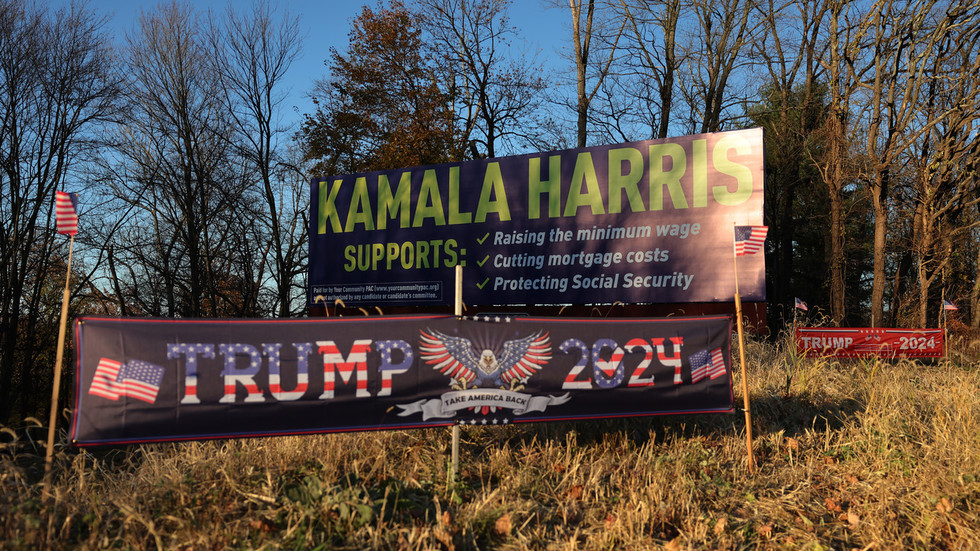Recent polling data reveals a significant level of dissatisfaction among American voters, with seven out of ten expressing unhappiness regarding the current state of affairs in the country. The findings from Edison Research, released by CBS News, indicate that a staggering 80% of voters made their candidate choice long before the elections, underscoring a trend of early decision-making. Among the array of issues voters are concerned about, the economy emerges as the primary worry, surpassing other contentious topics such as abortion. Comparisons to financial conditions four years prior reveal a troubling sentiment: many voters claim they are worse off financially, with a stark divide in perception between supporters of Trump and Harris. Trump supporters generally possess an overwhelmingly negative view of the economy, while Harris supporters maintain a more optimistic outlook, thus creating a reflective contrast in financial assessments.
The national sentiments extend beyond mere economic concerns, as new polls indicate that a striking 70% of Americans are either dissatisfied or angry with the direction in which the country is headed. This pervasive discontent is matched by an alarming expectation of violence, as the same percentage of voters believe unrest will follow the outcome of the election, regardless of which candidate wins. The priorities of self-identified Democratic respondents reveal that a majority — 56% — are primarily concerned with what they perceive as the state of democracy, while issues like abortion rights and economic conditions trail significantly behind. Conversely, self-identified Republicans place a majority of their focus on economic issues and immigration, with a much lesser concern for abortion and foreign policy, illustrating a party-line split in prioritizing political issues.
The disparities between party loyalties also extend to voter confidence in the electoral process. Democratic respondents expressed a greater sense of assurance regarding the fairness and accuracy of elections compared to their Republican counterparts. The emotional stakes tied to potential outcomes are particularly pronounced: a significant eight out of ten Harris voters reported feeling fear or concern if Trump were to win, while over half of Trump supporters indicated they would feel similarly uneasy should Harris assume the presidency. This climate of fear among voters is indicative of the heightened tensions leading into the elections and suggests an increasingly polarized political landscape.
The timing of voter decision-making also plays a crucial role in election dynamics, as the CBS exit polls reveal an overwhelming 80% of voters solidified their choice by September. In stark contrast, only independent, first-time, or infrequent voters opted to delay their decisions until Election Day. This trend of early commitment may present advantages for Republican candidate Donald Trump; however, there is a cautionary note from CBS analyses pointing out that the incumbents about the Democratic party managed to exceed expectations in the 2022 midterm elections despite similar economic concerns.
As the political climate intensifies and the election draws closer, the correlation between voter concerns and candidate preferences becomes even more pronounced. The increasing engagement and decisive nature of voters manifest in their strong expressions of dissatisfaction, fears surrounding election outcomes, and commitment to their chosen candidates. This suggests a moment in the political arena where historical patterns might shift, influenced by deep-rooted anxieties surrounding economic performance and democratic integrity.
In conclusion, as America approaches its next election cycle, the prevailing attitudes among voters paint a picture of a society grappling with significant economic distress and deep social divides. The incoming challenges will hinge on how candidates address these pervasive concerns and whether they can bridge the gap between polarized voter bases. The data showcases a pivotal moment in the American political landscape where voter sentiments on the economy, democracy, and broader societal issues could dramatically shape the future trajectory of the nation.

